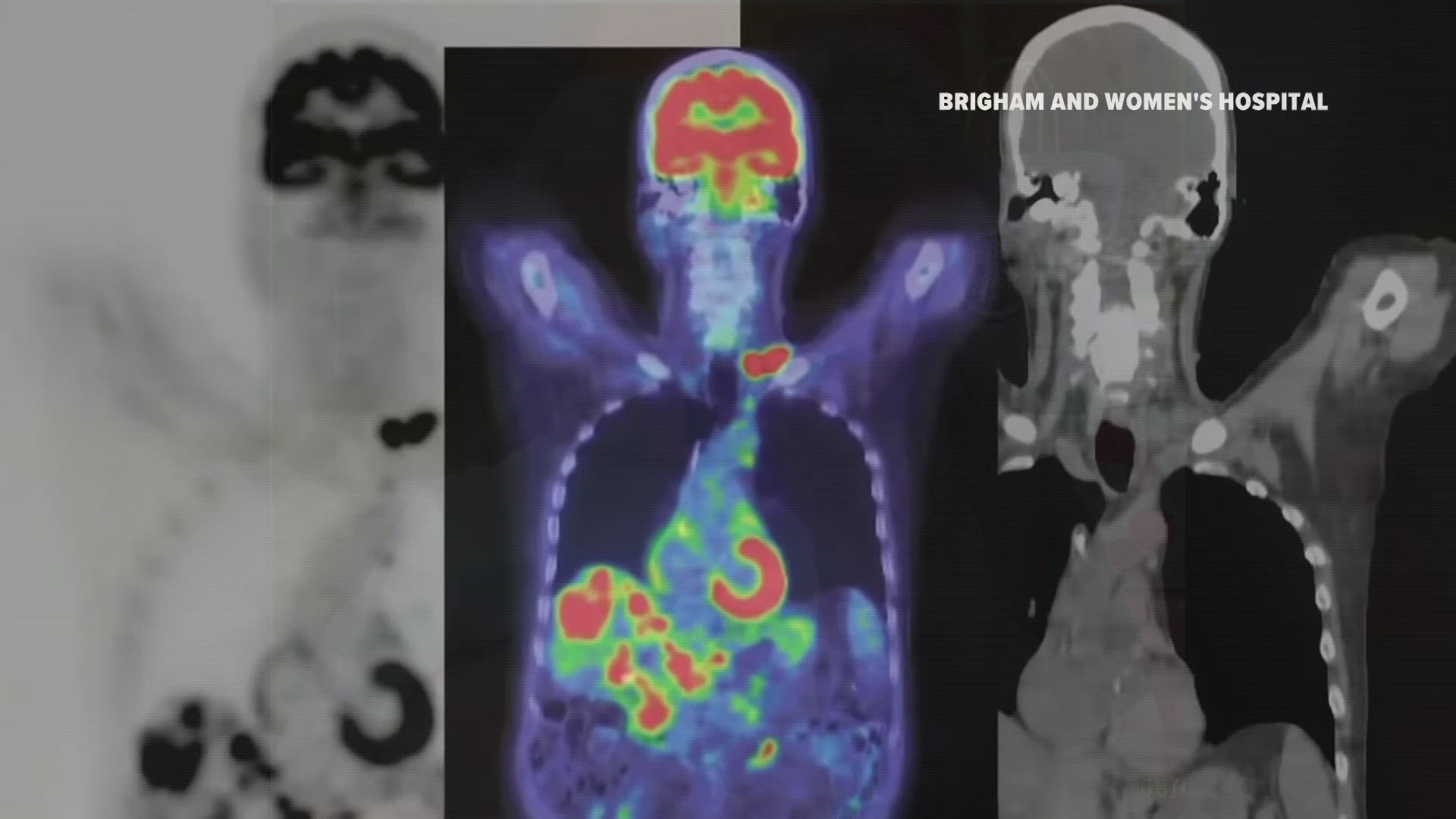WINDHAM, Maine — It's a hormone disorder that affects only about 10-15 million people across the country every year. Cushing's disease is when the body produces too much cortisol over a long period or can be triggered by steroid medications.
The disease causes weight gain and symptoms can be difficult to diagnose. That's why a Windham woman who has struggled with Cushing's disease for years is speaking out to help others.
In 2006, soon after giving birth to her second son, Kelly Knight started having debilitating headaches and gaining weight.
"I could see my body composition changing and all the weight was starting to pack on around my neck and the upper part of my body," Knight said with frustration.
Doctors told her she was probably overeating due to stress. A year later, she was one hundred pounds heavier and had more symptoms, so she started researching online to find answers.
"What causes lactating and headaches? The only thing that came up was a pituitary tumor," she said.
An MRI revealed a tumor in her pituitary gland, located at the base of the brain. The gland makes, stores, and releases hormones. But rounds of testing with a local endocrinologist still didn't find a cause.
She finally got a second opinion at The Pituitary/Neuroendocrine Center at Brigham and Women's Hospital in Massachusetts and doctors there removed the tumor during a procedure that went through the nose. The mother of two said she immediately felt better after surgery.
"Those cluster headaches, migraines ... were gone," she said.
Tests later revealed that Knight had Cushing's diseasen named for a brain surgeon, Dr. Harvey Cushing, who founded the center at Brigham and Women's and first described the condition.
Dr. Le Min, an endocrinologist at Brigham and Women's, has treated Knight. He said the disease can cause a range of symptoms, including a round face, weight gain, muscle weakness, and pain.
"It happens when the body makes too much cortisol hormone, usually causing a tumor in the pituitary gland, adrenal glands, or in the other parts of the body," Dr. Min explained.
Dr. Timothy Smith is a neurosurgeon at Brigham and Women's and has performed several of Knight's surgeries. He said the first line of treatment is usually removing the tumor, which in most cases is not cancerous.
"But it doesn't feel benign because the effects of it are so pervasive throughout the body," Dr. Smith explained.
Dr. Min said the disease affects adults between 30 and 50 and can be difficult to pinpoint. Symptoms can be similar to other conditions, including alcoholism and obesity. Cushing's disease is a form of Cushing syndrome that can be triggered by the use of certain medications, including steroids. Cortisol testing and brain scans are key to getting a correct diagnosis.
Knight was in remission for five years, then new symptoms and more serious health issues, including depression and back pain, cropped up.
"Type 2 diabetes showed up, high blood pressure did as well," Knight said.
She went on to have several more surgeries to remove tumors, with the latest procedure in February. She has lost some weight and seen improvement in her blood pressure levels.
With no cure in sight, she hopes hormone replacement medication will help keep her levels in balance. She is also participating in a study through Brigham and Women's, tracking her symptoms on her phone. Meanwhile, she's encouraging other patients to search for help.
"When your body doesn't feel right, you just need to keep pushing and asking for answers," Knight said.

